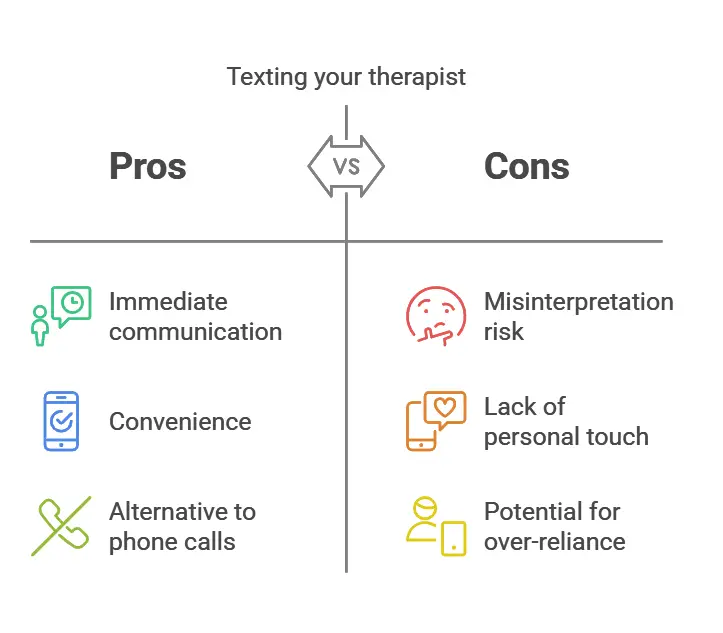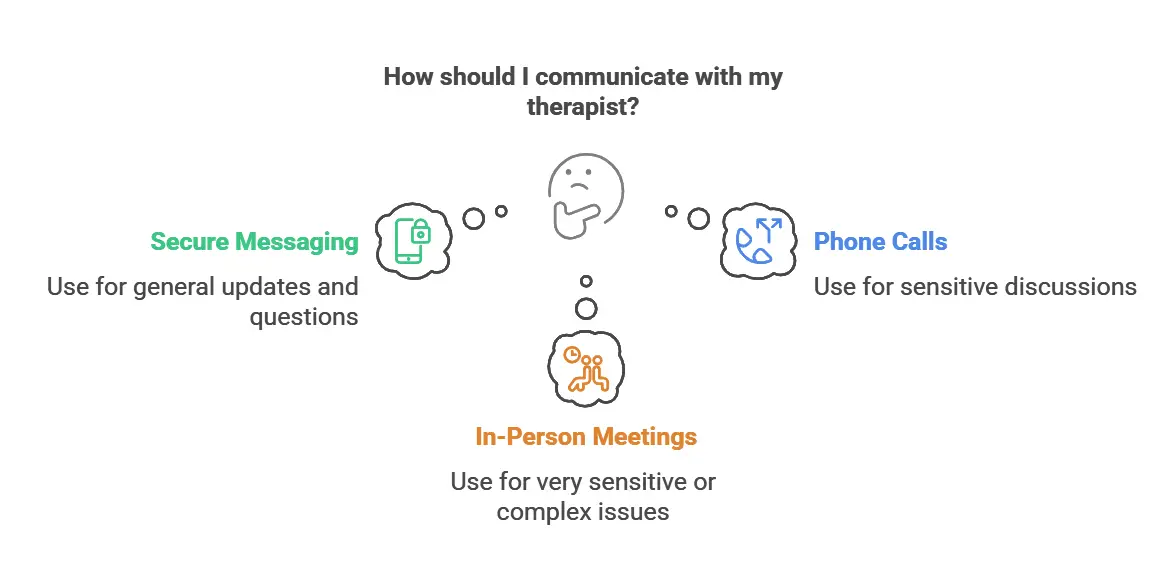Texting has become a ubiquitous part of our lives. We use it to communicate with friends and family, to stay up to date on the latest news, and to get work done. So, it makes sense that many people would want to text their therapist. After all, therapists are people too, and they probably use text messaging for communication just like everyone else. But is texting your therapist a good idea or Can I text my therapist?
There’s been a lot of talk lately about whether it’s appropriate to text your therapist. On the one hand, some people say that texting is a great way to communicate with your therapist and keep them updated on how you’re doing. Others argue that texting can hinder the therapeutic process and cause more problems than it solves. So, what’s the verdict? Should you text your therapist or not? Here are a few things to consider.
Can I text my therapist?
Can I text my therapist? It depends on a variety of factors, including the type of therapy you are receiving and the relationship you have with your therapist. In some cases, texting can be a helpful way to communicate with your therapist and get the most out of your sessions.
However, in other cases, it may be better to call or meet in person. In this article, we will explore the pros and cons of texting your therapist and help you decide what is best for you!
Pros and Cons of texting your therapist
There are pros and cons to texting your therapist – it’s ultimately up to you to decide whether or not it’s something you want to do. If you think it would be beneficial for you, feel free to reach out to your therapist and see if they’re open to the idea. However, if you don’t think texting would be helpful for you, that’s OK too. There are other ways to stay in touch with your therapist, such as email or phone calls.

Pros of texting therapist
Despite the risks, there are some benefits to texting your therapist. For one, it can be more convenient than other forms of communication, such as phone calls or in-person meetings. It can also help you stay connected to your therapist between sessions.
- The pros of texting your therapist: convenience, easy to communicate, can be done anywhere
- If you’re thinking about texting your therapist, there are a few things to keep in mind.
- First, it’s important to remember that texting is a convenient way to communicate. It can be done anywhere, and doesn’t require you to make an appointment or travel to your therapist’s office.
- Some people find it easier to express themselves via text than in person. If you have trouble communicating your thoughts and feelings out loud, texting may be a good option for you.
Cons of texting therapist
The cons of texting your therapist: potential for miscommunication, can be disruptive
Of course, there are also a few drawbacks to consider before you text your therapist.
- First, it’s important to remember that text communication can be easily misconstrued. If your therapist doesn’t have the full context of what you’re saying, they may not be able to understand your message correctly.
- Texts can be disruptive – if you’re in the middle of a therapy session and your phone goes off, it’s difficult to focus on what your therapist is saying.
Ultimately, the decision to text your therapist is up to you
Texting your therapist may not be as confidential as you think. While most therapists will do their best to keep your conversations private, there’s always a chance that texts could be intercepted or hacked. In addition, texts are often not secure and could be easily lost or stolen. If you decide to text your therapist, it’s important to be aware of the risks involved.
If you do decide to text your therapist, it’s important to be thoughtful about what you share. Just as you would in therapy, be honest and open with your therapist about what’s going on in your life. But also, be aware of the potential risks involved in texting, such as the loss of privacy or security.
How to make sure you’re texting your therapist safely and securely?
When it comes to texting your therapist, there are a few important things to keep in mind in order to maintain privacy and security.
- First, be sure to use a secure messaging app that uses end-to-end encryption, such as Signal or WhatsApp. This ensures that only you and your therapist can read the messages you exchange.
- Second, make sure you have a strong password for your account and avoid sharing your login information with anyone.
- Finally, keep in mind that text messages are generally less secure than other forms of communication, such as phone calls or in-person meetings. So, if you need to discuss something sensitive, it’s best to do so in person or over the phone.
In general, texting is a great way to stay in touch with your therapist between sessions. It can be used to ask questions, share updates, or just check in. However, there are some things that are best left to discuss in person. If you’re not sure whether something is appropriate to text about, just ask your therapist. They’ll be happy to help you figure it out.

What to do if you’re feeling unsafe or uncomfortable while texting your therapist?
If you are feeling unsafe or uncomfortable for any reason while texting your therapist, please reach out to a trusted friend or family member for support. If you feel like you are in immediate danger, please call 911. Your safety is always our top priority.
Wrap it up!
The verdict, can I text my therapist? You should text your therapist, but only if you’re comfortable doing so. If you don’t feel like texting is for you, that’s perfectly okay – picking up the phone and having a conversation with them in person can be just as helpful. Ultimately, it’s up to you and your therapist to decide what form of communication works best for the two of you.
